The 25 best TV shows of 2021
A modern-day epic, a murder mystery, and a true-crime sendup are all among the best TV shows of the year
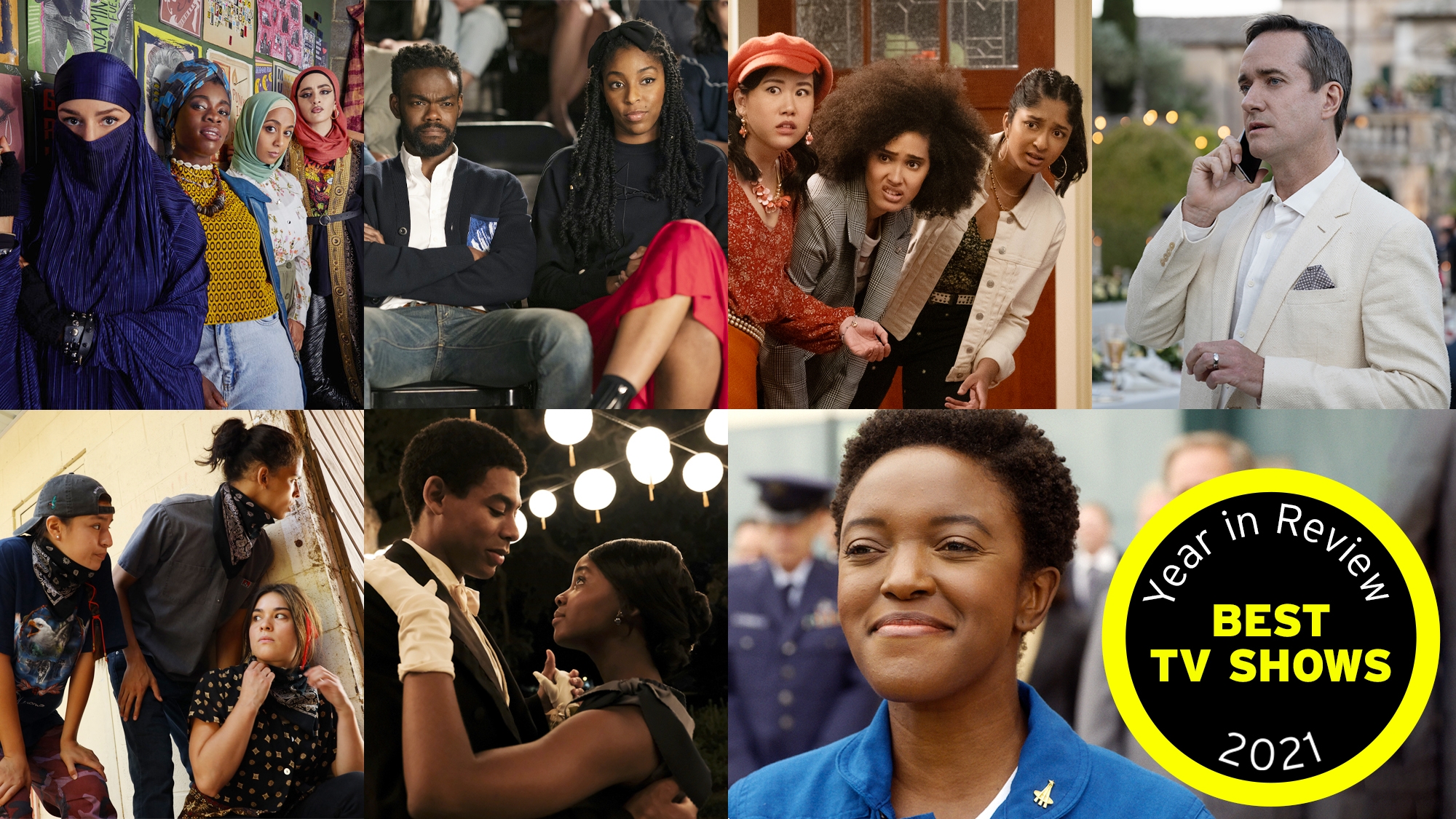
After a year of production delays and extended hiatuses, TV did return in 2021 with a vengeance—and a vision, and a mission, and even another look at one of our favorite terrible families. Though series like Grey’s Anatomy acknowledged the COVID-19 pandemic (which has since gotten a sequel), most of this year’s offerings were content to forge their own realities, whether it was the absurdist one of I Think You Should Leave With Tim Robinson, the capitalism-driven mayhem of Squid Game, or the assured, cogent direction of Insecure’s final season.
As the months went on, TV looked more and more like its old self, with a compelling variety of more intimate stories and adaptations that were nothing short of epic. The comfort watch, which dominated viewing in 2020, was still alive and kicking, but had taken on a new dimension. Peak TV even reared its head again, along with the debate over which was preferable: the binge model or the weekly release. Now, as we face another likely surge in COVID cases, it’s hard not to think of TV’s comeback this year as more of a limited series—that format has continued to thrive, as our list shows—than an ongoing one. That won’t prevent us from celebrating all the best that the medium had to offer in 2021, from vibrant historical dramas to giddy sendups to pitch-black satires. As it moved away from more comforting viewing, TV didn’t just challenge us—it challenged itself.
Once again, voting on the best TV series was a great undertaking, as we sorted through reboots, revivals, comic-book tentpoles, inventive new comedies, and one latecomer unlike anything else on TV right now. But 16 A.V. Club staffers and contributors took their duties seriously, submitting ranked ballots of our top 15 shows to bring you the 25 best shows of 2021.

After a year of production delays and extended hiatuses, TV did return in 2021 with a vengeance—and , and , and even another look at one of . Though series like Grey’s Anatomy acknowledged the COVID-19 pandemic (which has since gotten a sequel), most of this year’s offerings were content to forge their own realities, whether it was the absurdist one of , the capitalism-driven mayhem of , or the assured, cogent direction of ’s final season.As the months went on, TV looked more and more like its old self, with a compelling variety of more intimate stories and adaptations that were nothing short of epic. The comfort watch, which dominated viewing in 2020, was still alive and kicking, but had taken on a new dimension. Peak TV even reared its head again, along with the debate over which was preferable: the binge model or the weekly release. Now, as we face another likely surge in COVID cases, it’s hard not to think of TV’s comeback this year as more of a limited series—that format has continued to thrive, as our list shows—than an ongoing one. That won’t prevent us from celebrating all the best that the medium had to offer in 2021, from vibrant historical dramas to giddy sendups to pitch-black satires. As it moved away from more comforting viewing, TV didn’t just challenge us—it challenged itself. Once again, voting on the best TV series was a great undertaking, as we sorted through reboots, revivals, comic-book tentpoles, inventive new comedies, and one latecomer unlike anything else on TV right now. But 16 A.V. Club staffers and contributors took their duties seriously, submitting ranked ballots of our top 15 shows to bring you the 25 best shows of 2021.
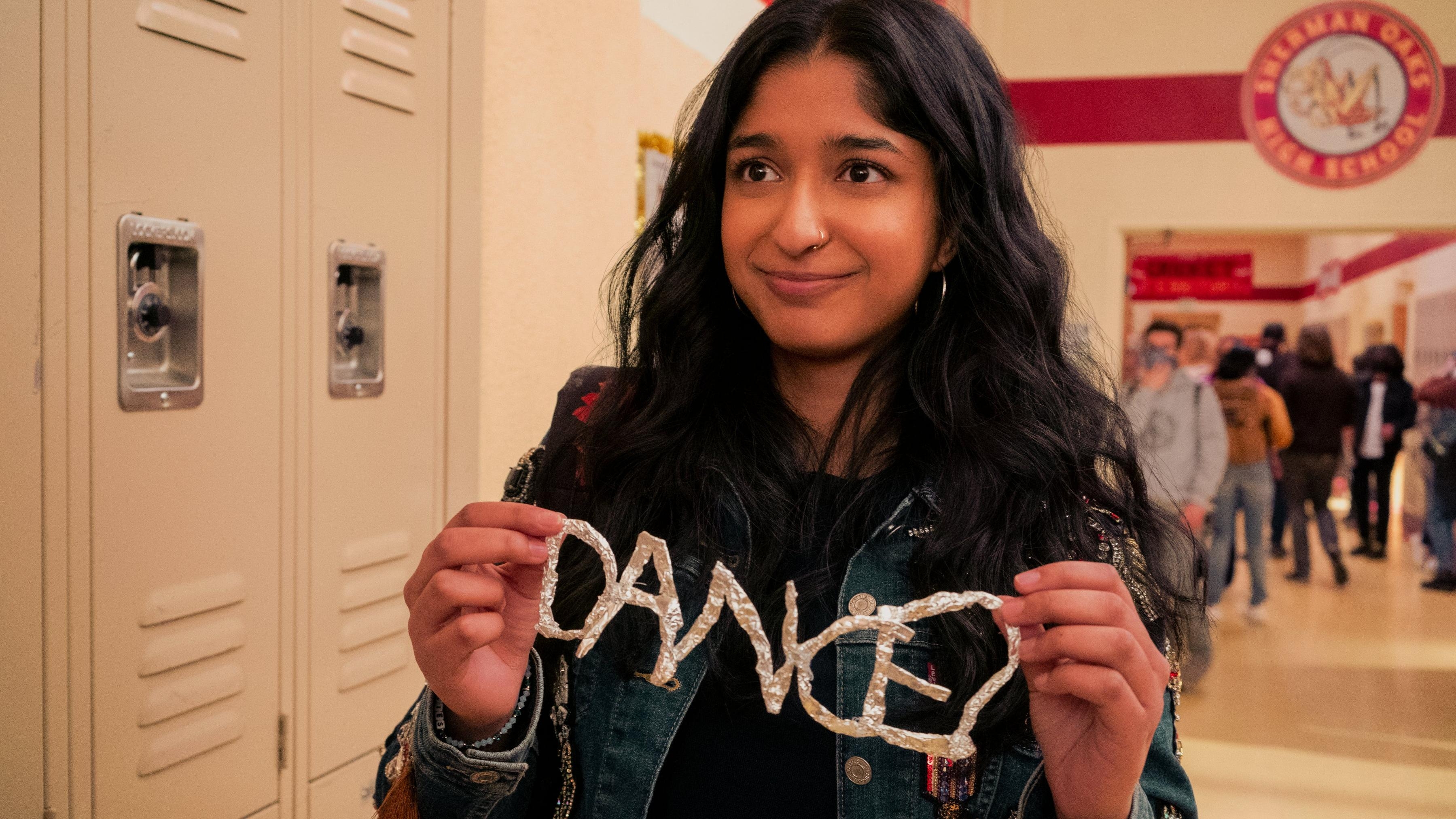
With Maitreyi Ramakrishnan in the lead role, Never Have I Ever became the best version of itself in season two. The coming-of-age dramedy presents a flawed heroine who’s still endearing and far too relatable as she deals with her rage, grief, and obviously, horniness for the two young men in her life: Ben Gross (Jaren Lewison) and Paxton Hall-Yoshida (Darren Barnett). Series co-creator Mindy Kaling lets Devi make plenty of mistakes in her love life, just as any hormonal young adult might, without making her the villain. The show deftly juggles its comedic zingers and emotional hooks without losing momentum, shining brightest when focusing on Devi’s fraught relationship with her mother, Nalini (Poorna Jagannathan). With hardly any programs centered on South Asian families, let alone capturing the nuances of their lived experiences, Never Have I Ever easily furthers representation on TV while telling wholesome, funny stories. [Saloni Gajjar]
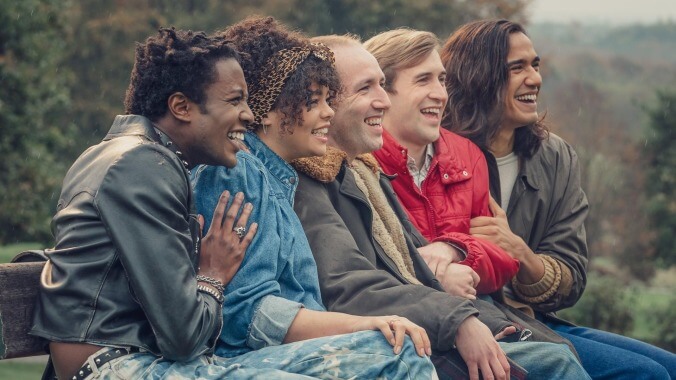
Pop culture that addresses the early days of the AIDS crisis can be downright bleak, given the overwhelming tragedy of what happened. And It’s a Sin, from Queer As Folk creator Russell Davies, doesn’t shy away from tragedy, especially in its later episodes. But the early episodes, which track the lives and loves of a tightknit group of young gay men—played by Olly Alexander, Nathaniel Curtis, Omari Douglas, and Callum Scott Howells, with Lydia West projecting a sturdy warmth as the politically active straight girl friend—in London in the early ’80s, are profoundly joyful. Rarely has the bliss of finally freely expressing yourself sexually been depicted with such happiness, which is the whole point: If not for the heavy judgment of a society that tries to shame them for their sexual desires, these men’s lives would have been drastically different. The series could be a little didactic on this point, but it’s hard to blame it, considering how much damage is caused by deeply ingrained homophobia, both then and now. By turns enraging, heartbreaking, funny, and sexy, the show is a history lesson, a fable about the importance of queer community, and a coming-of-age saga all at once. [Lisa Weidenfeld]
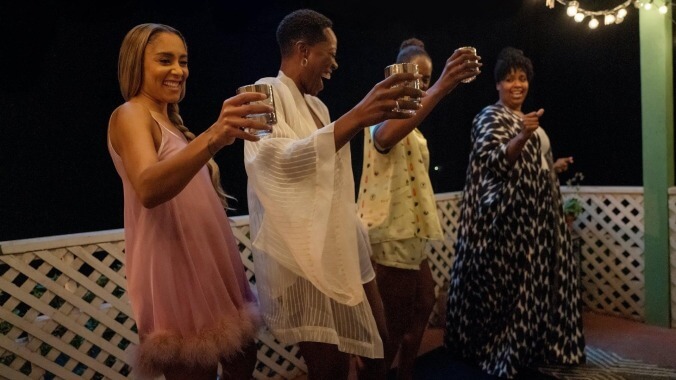
For all its joy and humor, Insecure has always been masterful at homing in on the tension between friends—not just material envy, but the conflicts that arise when the people who get you start to get to you. The penultimate season saw Issa (Issa Rae) and Molly’s (Yvonne Orji) already-fraying relationship finally snap, a conclusion that was both earned and poignant. That was a bold move on Rae’s part, followed by the even bolder decision to quickly heal the rift in the season-five premiere and let these friends—including Kelli (Natasha Rothwell) and Tiffany (Amanda Seale)—enjoy and find strength in each other’s company again. There was still some strife this year, because leveling up isn’t a straight trajectory, which led to some of the season’s funniest moments. Rae and Orji continued to delight, while Rothwell kept stealing scenes. The show’s broken boundaries, launched careers, and revitalized the hangout comedy; its legacy is already being discussed. But, in a move that reflected its protagonist’s evolution, Insecure made it clear it had nothing left to prove in its final episodes. [Danette Chavez]
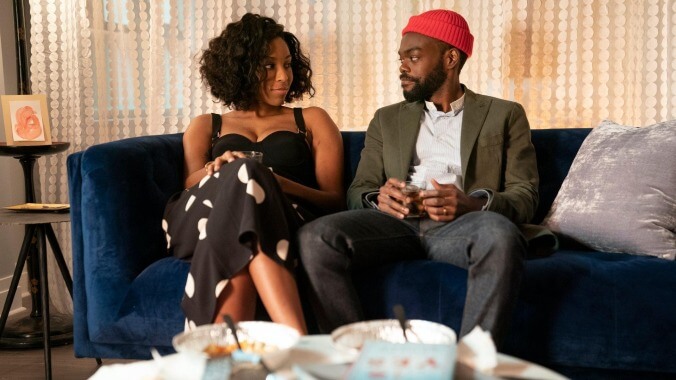
The of HBO Max’s Love Life failed to elevate the show’s generic, well-worn premise—a single twenty-to-thirtysomething finds love in New York City. But whereas the first season of Sam Boyd’s romantic anthology series floundered due to its anonymity, . Taking the reins from Kendrick’s Darby is William Jackson Harper’s Marcus, a Black, thirtysomething book editor who’s newly single after divorcing his white wife and in search of new love. Love Life’s second season retreads the familiar ground of the genre—drunken misadventures, unfulfilling threesomes, general musings on love and relationships—but breaks new ground as well. Newly minted co-showrunner Rachelle Williams crafts a fully realized world around Harper’s charismatic lead performance by exploring the complexities of double consciousness, interracial relationships, and finding love after divorce. The show remains as stylish as ever, with Boyd’s eye for visual storytelling carrying over from the show’s first season. And we’d be remiss not to mention the uniformly great supporting cast orbiting Harper, headlined by the wonderful Jessica Williams as Marcus’ central love interest, and Punkie Johnson, who shines as Marcus’ older sister. [Baraka Kaseko]
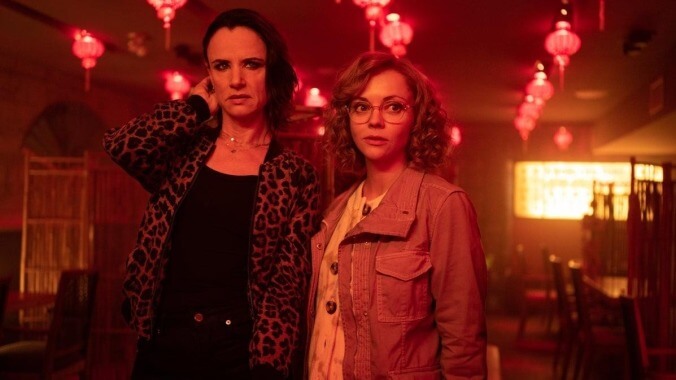
Yellowjackets handily wins , but the Showtime drama nabs a place on this list for delivering on the promise of that Karyn Kusama-directed hour. The unsettling new series, from Ashley Lyle and Bart Nickerson, can be viewed as an (admittedly extreme) allegory for adolescence—specifically, teen girlhood—or midlife crises, though it quickly shakes off any attempts at neat categorization. For every round of “Lord Of The Flies meets Now And Then” comparisons, there have been just as many suggestions that Yellowjackets is following in the footsteps of Lost, which also saw a group of people rely on each other in the not-so-idyllic wilderness. But Yellowjackets is very much its own terrifying-yet-engrossing creation, capable of finding new shades of darkness with each episode. To add to the accolades, the series has also managed to make meaningful use of multiple timelines, a feat that eluded several other 2021 shows, including . [Danette Chavez]
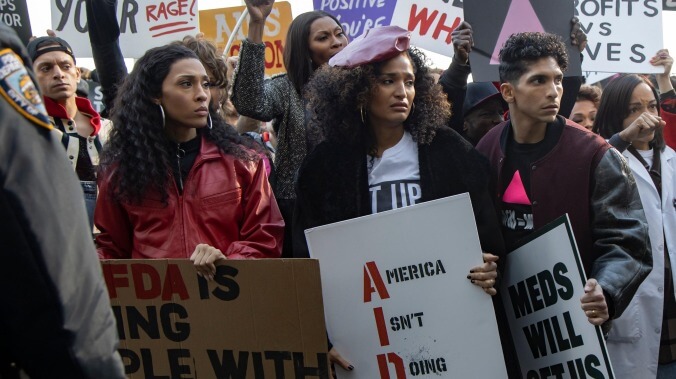
This FX period drama ended its three-season run as it began: overflowing with style and grace, and indulging in more than a hint of fantasy. Pose sought to provide LGBTQ+ people, particularly trans people of color, with the platform and protection they were often denied in real life, even as it revisited some of the most painful chapters in their history. , season three was always supposed to bring the intertwined stories of Blanca (Emmy nominee ), Pray Tell (Emmy winner), Elektra (Dominique Jackson), Angel (Indya Moore), Lulu (Hailie Sahar), Damon (Ryan Jamaal Swain), Li’l Papi (Angel Bismark Curiel), Candy (Angelica Ross), and Ricky (Dyllón Burnside) to a close. That didn’t make it any easier to say goodbye to one our favorite found families this year, especially when there are so few shows like Pose. But this compassionate drama always highlighted the hope in any situation, so we’ll take comfort in the knowledge that it raised dozens of talented performers to a new level, where they can find a way to continue these important stories. [Danette Chavez]

One of the year’s most hypnotic dramas, Maid dives right into the despair caused by poverty and loneliness without losing hope or humor. The series opens with Alex Russell (Margaret Qualley) taking her 3-year-old daughter and escaping an emotionally abusive relationship. With no source of income or a roof over her head, she relies heavily on various government assistant programs and a new job as a maid to make ends meet for her kid. The show doesn’t hold back as it tackles the bureaucracy of government assistance, but it’s ultimately a soul-baring depiction of a mother’s determination, as well as a tender story of how domestic abuse survivors cope with their trauma. Qualley’s resolute performance presents Alex as an unstoppable force of nature and a vulnerable young woman with dreams of becoming a writer. Maid is immediately captivating and doesn’t let up until the very end. [Saloni Gajjar]
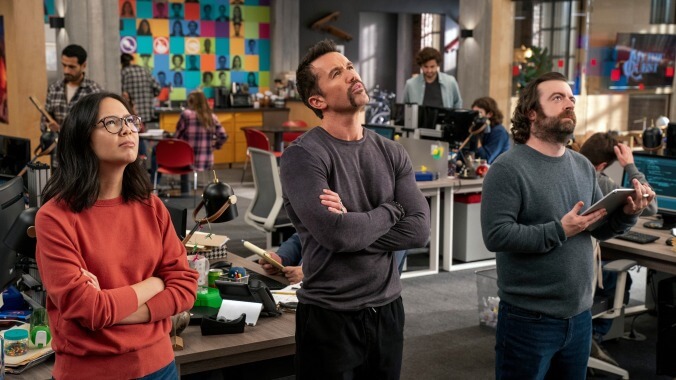
The fear of failure is never far from the mind of every character on Mythic Quest. Personal, professional, romantic, even familial—that anxiety in all its guises drives the humor and heart of Apple TV+’s most consistent joke-delivery system. It’s what makes the plotting so in sync with the characterization: The world of a culturally dominant video game has so enveloped these people, the fear of anything but total success drives nearly every decision they make. Or at least it normally does; the stories from the show’s gangbusters second season found time to mine the pathos of nearly every member of its ensemble in ways that kept surprising the viewer. Even a seemingly amoral schemer like had his damaged heart exposed to reveal the fragile humanity that drove him. So while Ian (co-creator Rob McElhenney) and Poppy (consistent MVP ) may be the ones leading the charge, nobody in the cast—no matter how minor their role in the company—gets marginalized. It’s one of the things that makes this acidly funny series so easy to love: For being so committed to putting its characters through hell, its affection for everyone onscreen never stops shining through. [Alex McLevy]
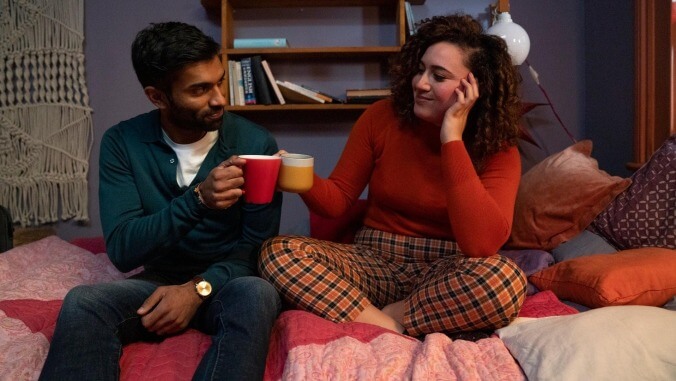
Often the butt of jokes, the romantic comedy has a way of attracting creatives who are hellbent on shifting the ethos in a way that makes the genre more palatable for non-fans. Rose Matafeo and Alice Snedden’s razor-sharp series Starstruck is an unexpected treat for rom-com die-hards because it doesn’t necessarily try to change a beloved template (aside from the choice to center on two truly engaging leads of color), but rather embraces what often makes the genre so comforting. The story of the burgeoning, albeit rocky relationship between twentysomething New Zealand expat Jessie (Matafeo) and film heartthrob-slash-former one-night stand Tom Kapoor (Nikesh Patel) spans a lightning-quick six-episode season and still manages to offer everything that fans of contemporary romance need: chemistry, witty banter, layered conflict, and most of all, two actors who understand how to communicate real emotional stakes to the audience. But what makes the HBO Max gem so great is that it largely relies on Matafeo’s undeniable charm and grounded take on the romantic lead instead of trying to pose as something that it isn’t. Starstruck works so well because it greases the wheel without reinventing it. [Shannon Miller]
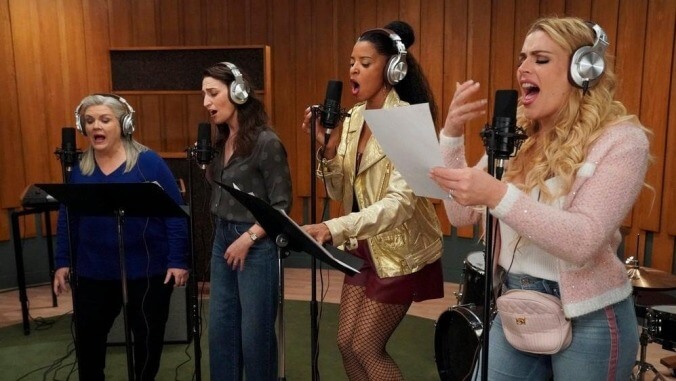
Peacock’s greatest comedic treasure, Meredith Scardino’s Girls5Eva, is a show with a simple premise: A ’90s girl group reunites for a comeback when a song of theirs is sampled by a rapper. But it manages to shine in just eight episodes because of how sharp and enjoyable it is. It’s not only the pleasure of watching the four surviving members of this girl group (Sara Bareilles, Busy Philipps, Paula Pell, and Renée Elise Goldsberry, with Ashley Park’s fifth member having supposedly died in “an infinity pool accident”) perform some of the best pop parody music this side of , but in all of the delightful guest spots and music videos that come with it. Girls5Eva is a show that smartly delivers an onslaught of jokes per minute—now a hallmark of any series involving Tina Fey, who is an executive producer here—without ever sacrificing the dramatic momentum of the journey its girl band is going through. [Juan Barquin]
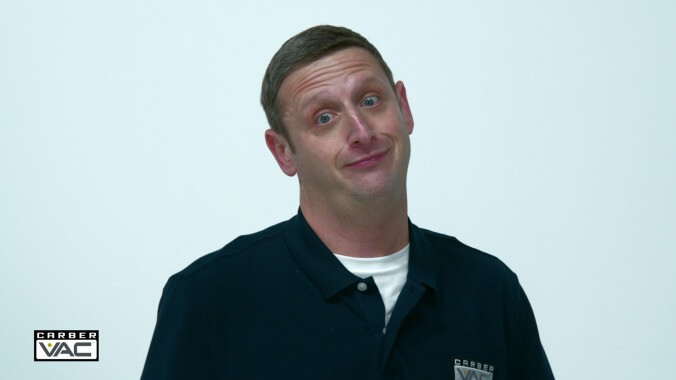
God only knows how many ideas Tim Robinson and his band of absurdist collaborators left on the cutting room floor while creating season two of his series. For a genre that tends to be defined by uneven quality from one bit to the next, I Think You Should Leave’s brand of go-for-broke silliness has a hit-to-miss ratio most other sketch comedy programs would kill to achieve. Robinson’s knack for inhabiting hapless oddballs whose desperation drives them to outlandish lengths remains the secret weapon of most episodes, whether it’s a guy who refuses to skip lunch or a passionate advocate for Calico Cut Pants. But his flop-sweat-laced weirdos were matched for sheer hilarity this year by bodies falling out of coffins, guys who just can’t make a joke at their wife’s expense, and Bob Odenkirk out-Robinson-ing Robinson himself. The show’s never met an idea too absurd to tackle, and the gusto with which it embraces some of the most belief-beggaring premises is what keeps it all from imploding. It’s Monty Python for the 21st century: humor so dumb, it requires some serious smarts to make work. [Alex McLevy]
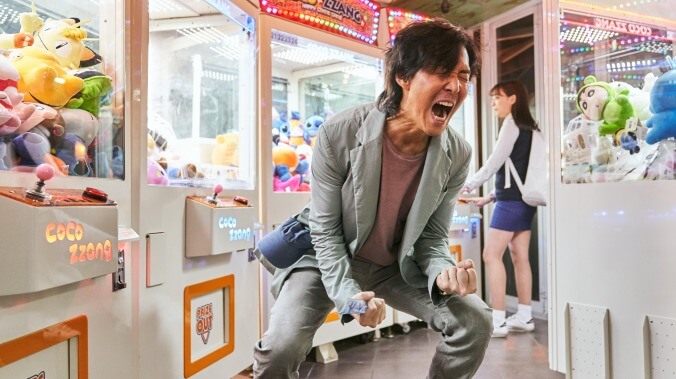
We like to believe that our ethics are ironclad; then somebody drops a large pile of money into the room. That’s the visceral pull of Squid Game, intense and absolute as gravity: Money talks, goads, forces, conquers. Once enough commas enter into the cash amount, everything else—human life very much included—becomes peripheral. Grim stuff. Luckily Hwang Dong-hyuk’s Netflix phenomenon aspired to more than just selling us greed-slaughter thrills; the South Korean filmmaker wanted to explore the oppressive weight of capitalism, and how the crushing depths of rock-bottom can squeeze us until it finally catapults our survival instincts to sickening new levels. Squid Game lures in viewers with its pastel-colored, polygonal Playstation aesthetic, mesmerizing them with its violent delights, then moving in for the kill with a humanity that hits harder than any melee weapon ever could. Tossing a riveting ensemble () into a candy-coated abattoir, Squid Game set the crucial tenets of civilization into opposition with each other: sympathy versus survival, safety versus ambition, bravery versus cruelty. Its conflict is raw, its impact global, its unflinching gaze at us at our most desperate, everlasting. [Jarrod Jones]
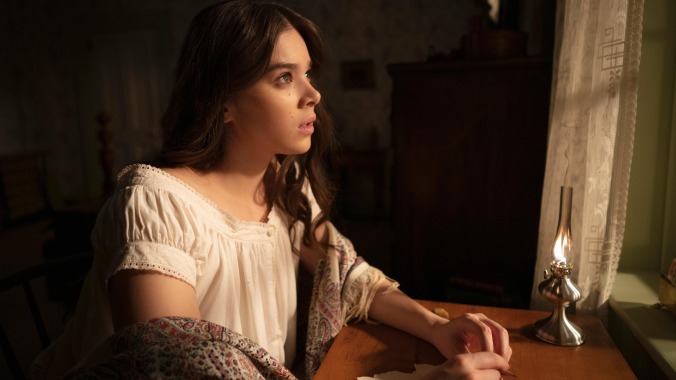
, wrapping up its short-lived run-in time to send star Hailee Steinfeld . What it leaves behind, however, is a legacy that won’t soon be forgotten—much like the titular Emily Dickinson herself. With its playfully anachronistic sensibility, Dickinson invited viewers to appreciate how the past might have felt to those living through it. And it did the same when it came to externalizing the life of a famously internal person. With a second season about fame and artistic integrity and a third about division and conflict during the Civil War, Dickinson stepped up its game in a major way this year. Across both seasons, the show balanced goofy humor with meaningful stories about 19th-century feminism and Black abolition, not to mention a love of language that infused every corner of its magical realist storytelling. Poetry, one character argues, is the thing that can put us back together again when we’re torn apart. And without being Pollyannaish enough to believe it’s really that simple, Dickinson makes the case that our ultimate power comes from self-knowledge—and the poetic words that steer us towards it. [Caroline Siede]
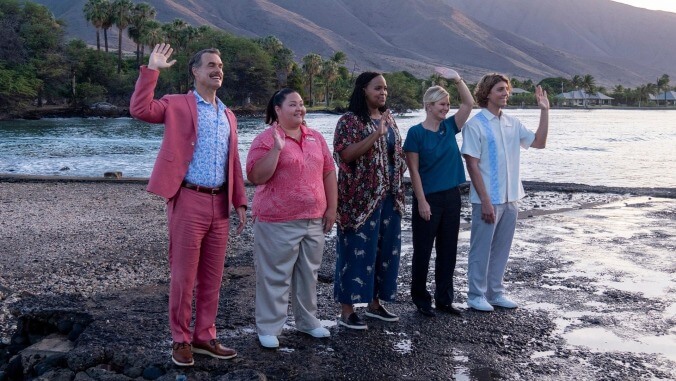
Anyone looking for a respite from our “summer of Delta doom” might have been tricked into thinking The White Lotus could provide such relief. But Mike White’s satirical glimpse into the haves and have-nots at a luxury Hawaiian resort ended up providing little comfort, though it never failed to eviscerate and entertain across its six episodes. While the mention of an untimely death propels some of the tension, it eventually takes a backseat to the real crime the show is interested in exploring: how affluence perpetuates a cycle of careless cruelty. Despite its underlying message, the tone is never smug or preachy but painfully funny—emphasis on pain. This is achieved in no small part by the show’s acerbic script and the masterful performances of one of the best cast ensembles of the year. , as a Sonja Morgan-esque hot mess in grief, finally gets a role worthy of her cult status, while delights as Armond, the hotel manager who quickly spirals out of control. The fact that the finale left many of us deeply unsettled is the point: Only a select few have access to paradise and happiness is fleeting for us all. [Ines Bellina]
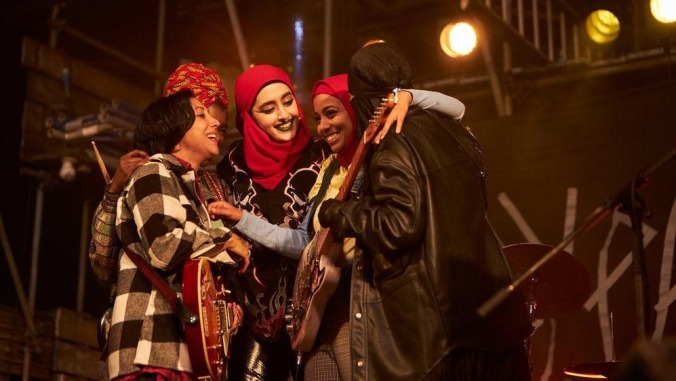
Nida Manzoor’s We Are Lady Parts is an electric and uplifting sitcom that tells multiple diverse Muslim stories, at the center of which are the five members of the all-women rock band Lady Parts. The show weaves a vital coming-of-age story into a larger tale about the importance of accurate representation in stylish fashion and with biting humor. With Muslim women in control of the narrative behind and in front of the camera, We Are Lady Parts is a show like few others, offering a compelling showcase for incisive young actors, especially Anjana Vasan and Sarah Kameela Impey. A remarkable ensemble, nuanced writing, and dope original tracks made this one of Peacock’s breakout hits—it’s no wonder the streamer’s . [Saloni Gajjar]
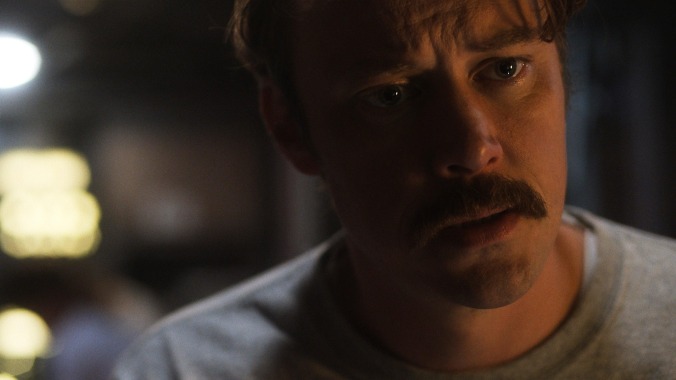
In For All Mankind’s second season, the alternate history series about NASA astronauts, engineers, and their spouses made great use of ingredients that used to be common to all good TV dramas. The characters are flawed but likable; and they genuinely seem to enjoy each other’s company as much as viewers enjoy watching them. The individual episodes are eventful in and of themselves, but also generate a larger narrative tension—which this year paid off in a thrilling and nerve-wracking final stretch. In short: For All Mankind is damned entertaining, irrespective of everything it’s saying about jingoism and paranoia in the ’60s, ’70s, and ’80s (and now). This season, as the Americans and the Soviets jostled for territory on the moon’s surface, the unforgiving environs—and the fragility of all the space-suits and research stations—made the inevitable introduction of guns and Cold War mistrust all the more intense. At any given moment, it felt like our heroes could either do something inspiringly amazing or could accidentally destroy civilization. This is a brilliantly conceived piece of modern science-fiction, grounded in the problems of the past. [Noel Murray]
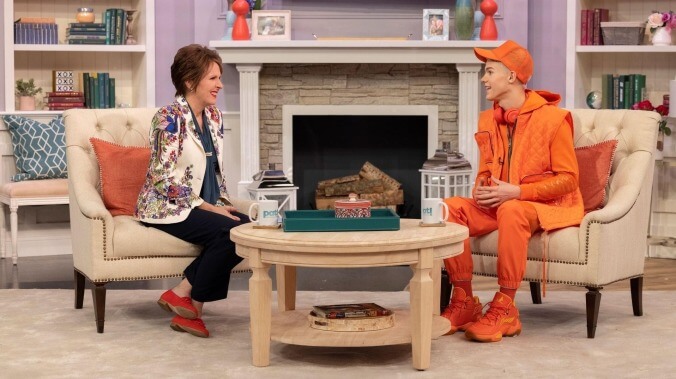
The Other Two improved on its already-stellar first season by shifting the star focus in the family from young Chase Dreams (Case Walker) to the nicest mom in all of TV, Molly Shannon’s Pat. The creation of Pat’s superpopular daytime talk show was a stroke of comedic genius, offering wayward daughter Brooke (Heléne Yorke) not just a job but a way to meet prospective dates, and giving us even more scenes of Pat being unfailingly delightful, even as she works around the clock to keep her kids and her endless line of fans happy. Meanwhile, older brother Cary (Drew Tarver) scored various onscreen hosting jobs, asking people about their age, net worth, and feet, and offering hilarious readings of lines like, “In more gay news, Laura Dern was spotted kayaking…” The series furiously delivers one caustic zinger after another, taking on the entertainment industry even as the Dubek family remains tied to it. But the family is also at the heart of the show, so when both Pat and Chase reach their limits by the end of the season, Brooke and Cary are there to help them recover, giving The Other Two a surprising sweetness that balances out all the entertaining saltiness. [Gwen Ihnat]
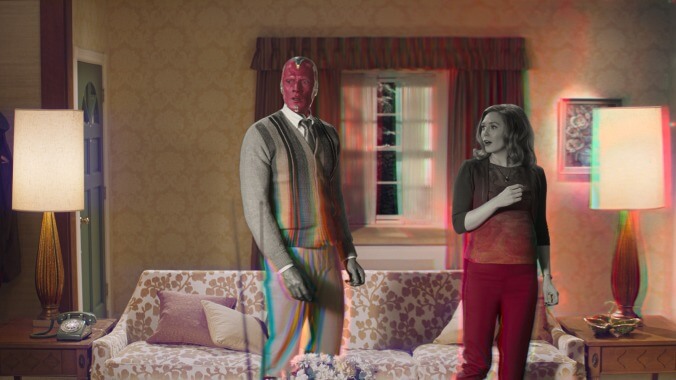
A year into a global pandemic, audiences could probably relate to Wanda Maximoff (Elizabeth Olsen) retreating from a grim reality into the comforting nostalgia of TV sitcoms. WandaVision itself was more than simple escapism. Ambitious and innovative, the Disney+ series is a heartfelt exploration of grief and loss. The Marvel series that followed—, , and —would all address in their own way the human impact from defeating Thanos, but WandaVision set the standard. Series creator and head writer Jac Schaeffer set up an intriguing mystery within a seemingly whimsical premise that demanded viewers “please stand by” for the next weekly installment. WandaVision consistently defied expectations, even when this might’ve frustrated the fans whose plot speculations grew wilder with each installment. No, Doctor Strange wasn’t going to rescue Wanda, and Agatha Harkness () wasn’t secretly working for Mephisto. Olsen earned well-deserved Emmy and Golden Globe nominations for her performance as a woman pushed to the breaking point but who emerged from her trauma more powerful than ever. Paul Bettany is delightful as the Vision—literally the man of Wanda’s dreams but also one of the most human characters in the entire MCU. [Stephen Robinson]
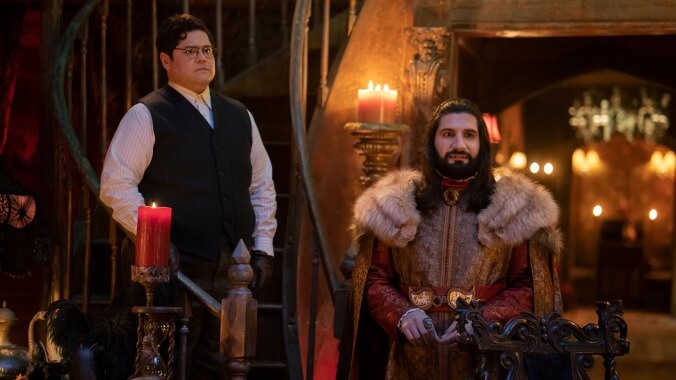
What We Do In The Shadows could have settled for riding the hype from its breakout second season. Instead, the show’s third season continued to push the cast, creating new primary pairs of characters beyond the expected duos: Nandor (Kayvan Novak) and Nadja (Natasia Demetriou) spend much of the season together, squabbling over Vampiric Council business, while Colin Robinson (Mark Proksch) and Lazslo (Matt Berry) go on a series of increasingly demented and oddly affecting bro escapades. In keeping with this desire to go to new places, Guillermo (Harvey Guillén) is no longer the focal character of the series. Instead, we follow Nandor as he experiences a season-long existential crisis that is delightfully over-the-top (he’s a vampire, after all) but still composed of some very relatable activities, like having an ill-advised fling with an ex, joining a wellness cult, and spending way, way too much time at a Big Bang Theory slot machine in Atlantic City. Most impressively, WWDITS has managed to remain hilarious while taking its characters more and more seriously, to the point where the potential scattering of the characters across the globe—to say nothing of Guillermo and Nandor’s increasingly unbearable romantic tension—feels like a real source of drama instead of (or, really, in addition to) an engine for some of the best jokes on TV. [Eric Thurm]
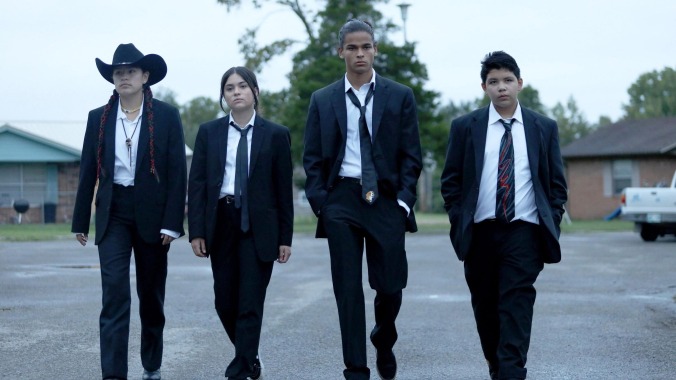
There has never been a coming-of-age story on TV quite like . Sterlin Harjo and Taika Waititi’s meticulously crafted original series defies categorization; at any given time, it can be a screwball slapstick comedy, an affecting drama, a hyper-specific slice-of-life sitcom, or a surrealist horror. Set in Oklahoma, Reservation Dogs centers on four Indigenous teenagers—Bear, Elora Danan, Cheese, and Willie Jack, the eponymous “Rez Dogs”—as they commit crimes to save up enough money to move off the reservation. That premise alone would be enough to mine a season’s worth of zany heist-of-the-week hijinks, but Harjo and Waititi’s all-Indigenious writers’ room goes deeper. There’s an undercurrent of grief and abandonment that runs through the first season, but also warmth and a strong sense of community. The standout episodes are the four devoted to deconstructing each member of the Rez Dogs, and their individual connections to the reservation. The principal performers are also all fantastic: D’Pharoah Woon-A-Tai as the amusingly overconfident Bear; Devery Jacobs as the smart, stoic Elora Danan; ; and Lane Factor as the gentle but formidable Cheese. [Baraka Kaseko]
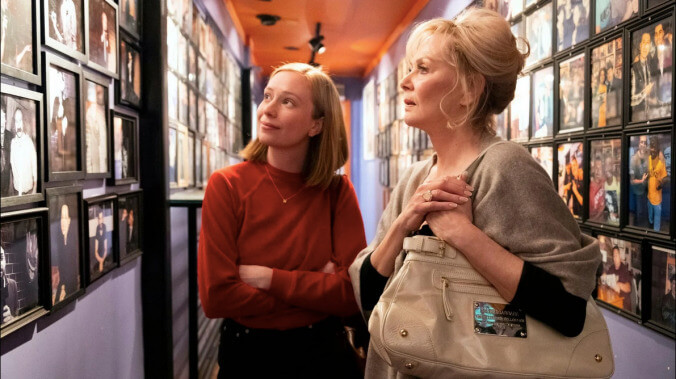
When Ava Daniels and Deborah Vance begrudgingly agree to work together writing comedy, it seems a necessary evil for both: One is a TV writer constantly apologizing to Hollywood for her bad tweets, while the other is a Vegas standup being forced into the twilight of her career by casino management. On the surface, Hacks uses this setup to tell the story you’d expect, as the two women learn about each other and themselves in navigating a personal and professional relationship. But Hacks commits to giving its characters sharper edges: Ava is toxic in Hollywood for reasons beyond her tweets; Deborah’s tragic past frames her risk-averse present in a new light; and the characters within their orbit—especially Marcus (Carl Clemons-Hopkins), Deborah’s loyal but underappreciated COO—underline those qualities. Hacks is anchored by an Emmy-winning performance from Jean Smart, skillfully constructing the veneer of Deborah’s public persona while thriving in peeling it away layer by layer. However, the show depends on giving Deborah a worthy foil, and Hannah Einbender walks a tightrope of unlikability with Ava that elevated both of their stories, and helped Hacks evolve into one of the year’s best—and, crucially, sharpest—comedies. [Myles McNutt]
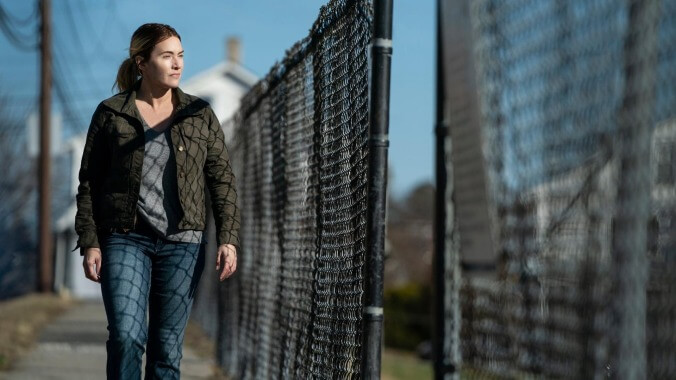
Mare Of Easttown was structured around a murder mystery, but the case of the puzzling death of a young girl mainly served as a gateway into the psyche of one Detective Mare Sheehan, masterfully portrayed by Kate Winslet. As Mare investigates this crime, which winds up being uncomfortably close to home, she begins to unpeel the tough layers she’s built up after her son’s suicide, so that her internal journey becomes even more fascinating than her external one. A stellar supporting cast, including Evan Peters as Mare’s besotted young partner and Jean Smart as her acerbic mom, helped make Mare a must-see. But it was Winslet’s show all along—we were able to witness Mare’s progression over the course of only seven episodes thanks to a perspective-shifting performance from an actor who proved that she still has the ability to astonish. [Gwen Ihnat]
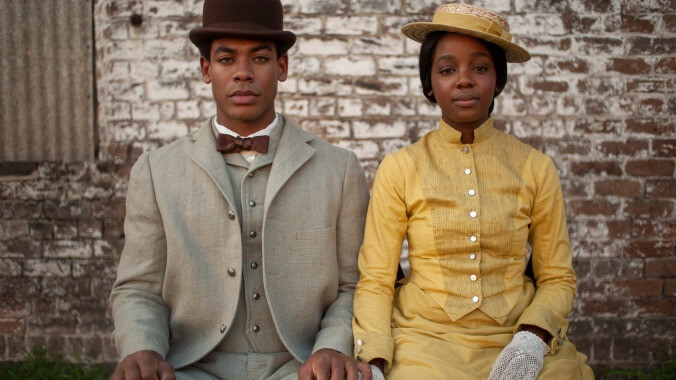
Magical realism has never felt more real than The Underground Railroad, a haunting and harrowing journey through America’s cruelest historical chapters. Cora () and Caesar () abscond in the night to escape a Georgia cotton plantation and its capriciously sadistic owner. They either flee to the North or they die, stakes made abundantly clear by a parade of grotesqueries in the opening installment. As easy as it would be to turn away from the lurid imagery, Mbedu’s and Pierre’s crackling performances make it impossible to abandon the pair as they set off on their journey. Working from Colson Whitehead’s novel, creator Barry Jenkins brings all the visionary flourishes he established on such brutal and beautiful visions of Blackness as and . Each new stop on the railroad—here a literal locomotive bound for the promised land—offers its own distinct vision of how the wounds of slavery reverberated through communities. That structure lends Railroad an anthological quality, which puts the viewer in the same position as the escapees, equally tantalized and terrified by what lies ahead. With every new whistle-stop comes another chance to illuminate the darkness and snatch hope from the jaws of despair. [Joshua Alston]
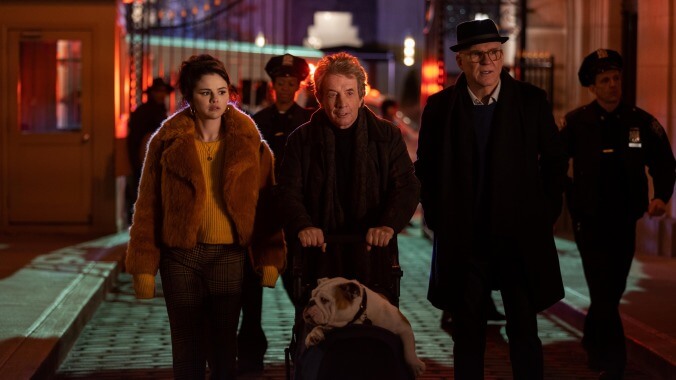
Only Murders In The Building’s thrilling first season satirizes the true-crime podcast takeover with wicked good humor. The series sees Charles (co-creator Steve Martin), Oliver (Martin Short), and Mabel (Selena Gomez) investigate the death of a neighbor by starting their own podcast, forming an unlikely bond in the process. Gomez holds her own opposite the two comic legends; their sweet intergenerational dynamic anchors the show and makes the most of its witty writing. At first glance, OMITB might appear to be a simple parody of true-crime lovers, but it’s by turns grounded, incisive, and inventive. Each episode is narrated from a different character’s perspective, which leads to one of the best episodes of the year, the almost fully silent “The Boy In 6B,” while expanding on a surprisingly exciting central mystery—trying to figure out the murderer’s identity is as addictive as any true-crime podcast. [Saloni Gajjar]
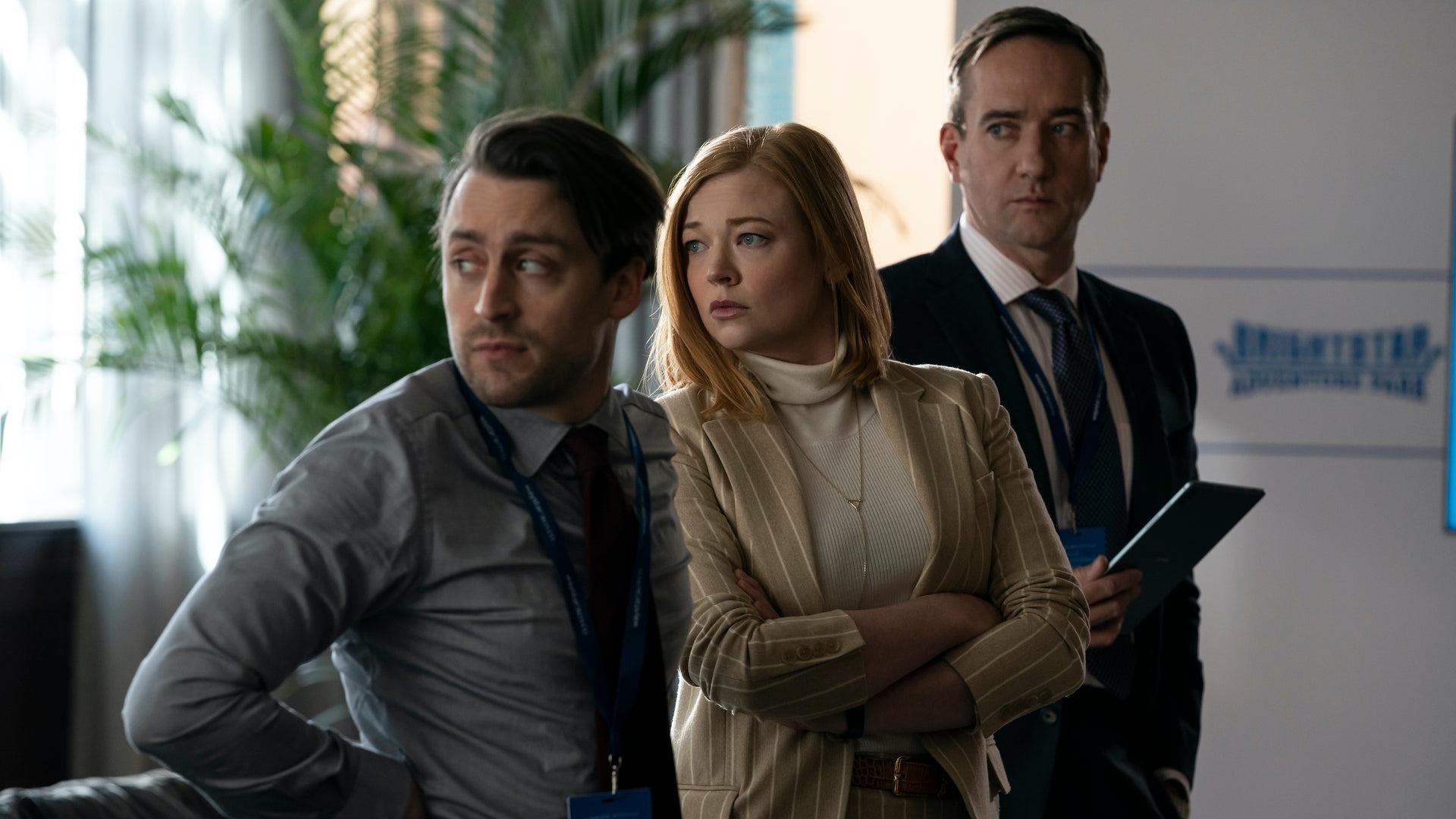
Much of the discussion around Succession’s third season has been filtered through the notion of winners and losers, though those statuses are nothing if not fleeting on a show as dedicated to reversals of fortune as Jesse Armstrong’s acidic tragicomedy. The real victors have been the viewers at home, who got to watch as the Roy family tore each other apart with gusto, all while a certain Midwestern interloper watched from the wings, waiting for the chance to pounce. , concern developed early on, as it seemed the most vocal Roy siblings—Kendall (Jeremy Strong), Shiv (Sarah Snook), and Roman (Kieran Culkin)—were stuck in old patterns, thereby inhibiting the momentum of the larger story. But, like exacting patriarch Logan Roy (Brian Cox), the series was just biding its time, building up to a coup de grâce to end all coups de grâce. After a season that seemed to suggest the Roy kids would always be vying for a “,” Succession shattered its status quo in that was also its most beautifully directed episode to date. Maybe we should have always expected that from Armstrong et. al; what was more surprising was feeling the grim satisfaction derived from watching the super rich fight for supremacy dissipate as three siblings took a chance on each other. [Danette Chavez]
GET A.V.CLUB RIGHT IN YOUR INBOX
Pop culture obsessives writing for the pop culture obsessed.